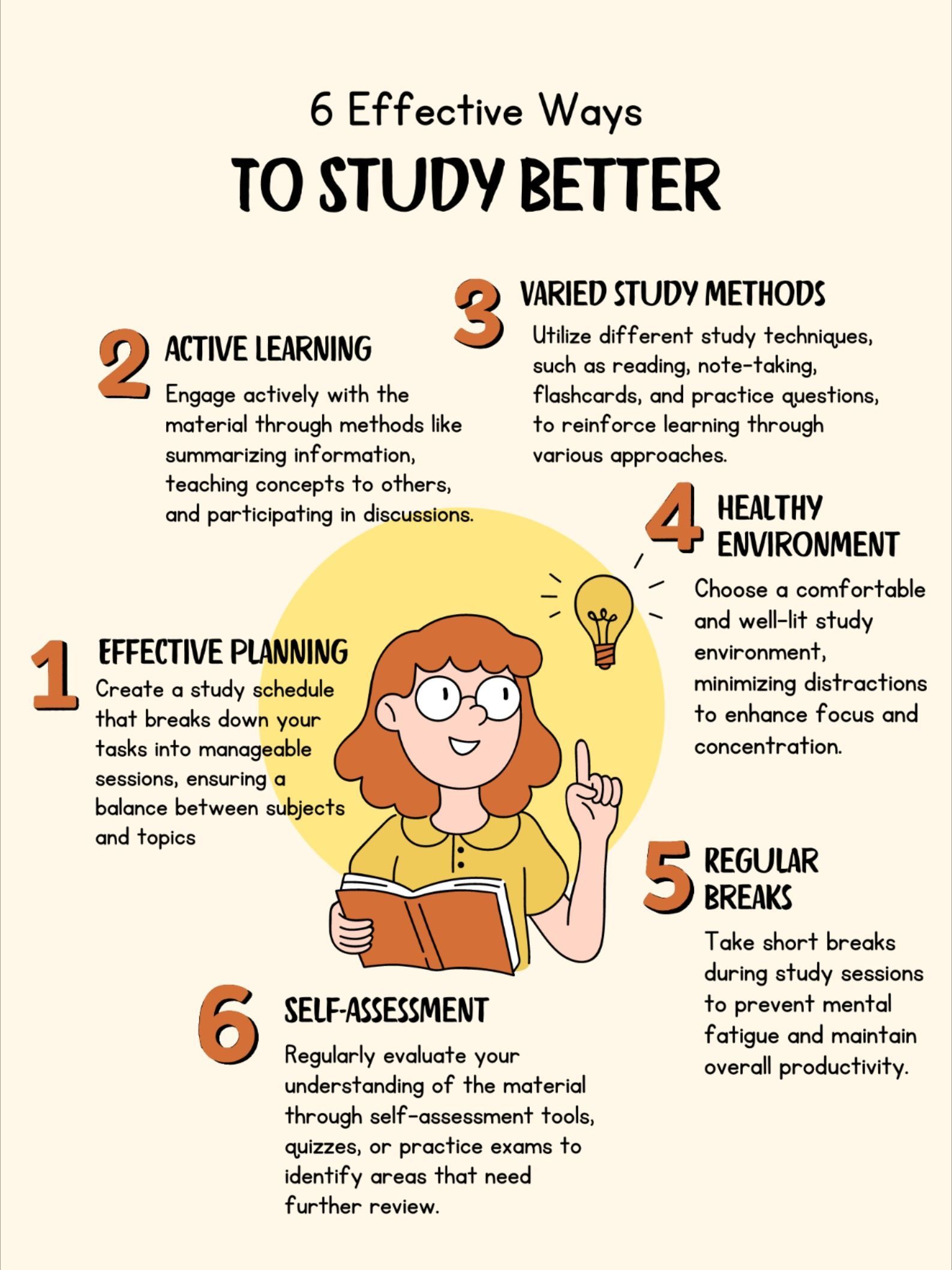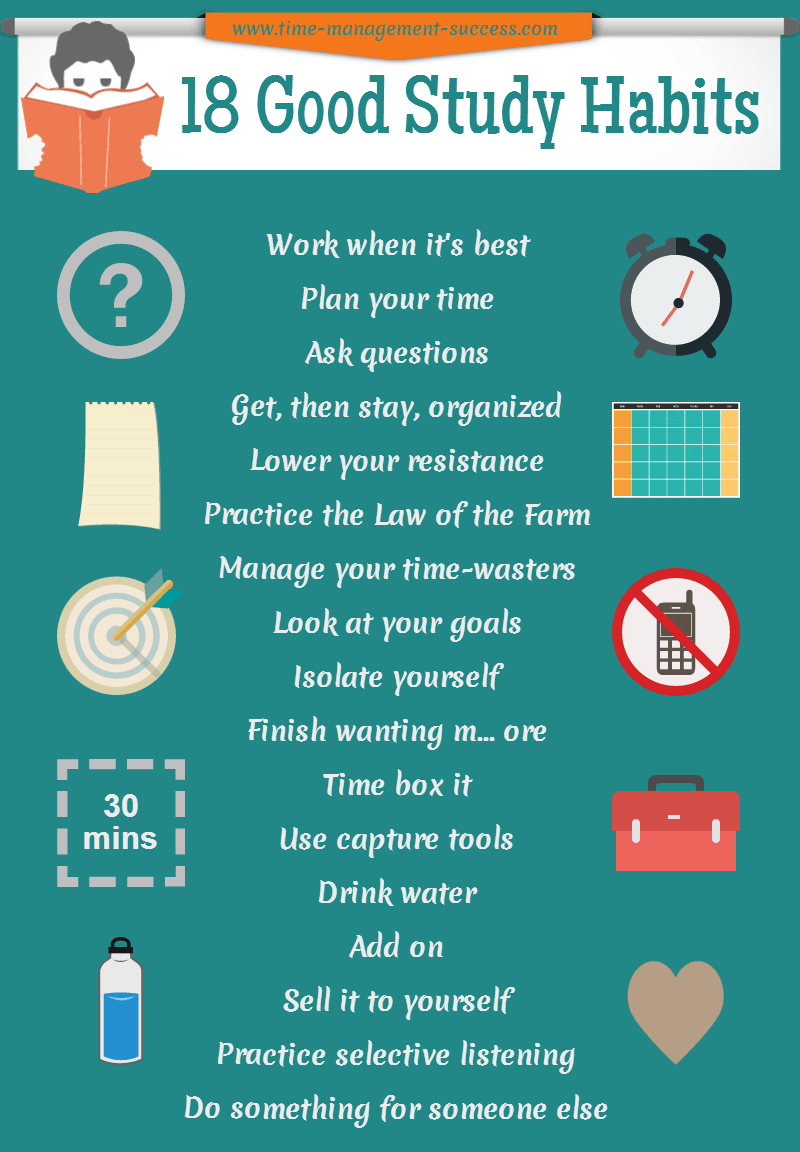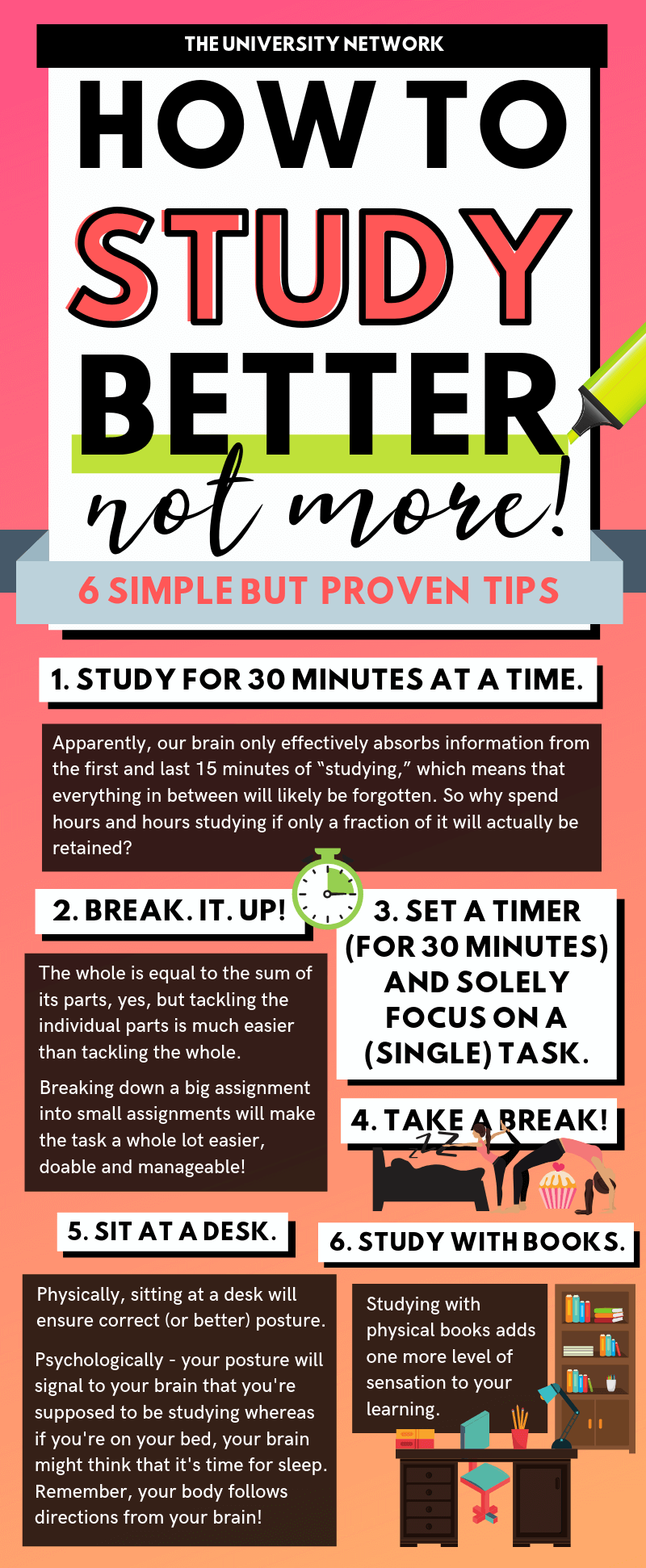How to Study Better: Proven Tips for Academic Success
Studying effectively is a key skill that can transform your academic performance. Whether you’re in high school, college, or continuing your education, how you study plays a critical role in retaining information, passing exams, and achieving long-term success. In this guide, we’ll explore practical and proven tips on how to study better and maximize your learning potential.

Why Effective Study Habits Matter
The way you approach studying can make all the difference. Effective study habits enable you to absorb information efficiently, reduce stress, and improve your academic performance. Without proper study techniques, students often find themselves overwhelmed, relying on last-minute cramming that isn’t effective in the long run.
Adopting the right habits not only saves time but also enhances understanding, leading to better grades and a deeper connection with the material you’re learning.
1. Create a Study Schedule and Stick to It
The first step in studying better is to manage your time wisely. A solid study schedule helps you stay organized, reduces procrastination, and ensures that you’re consistent in your efforts.
Plan Ahead
-
Set specific goals: Identify the subjects or topics you need to focus on and create a schedule that allocates enough time for each. Break down your goals into manageable tasks to avoid feeling overwhelmed.
-
Consistency is key: Try to study at the same time each day. Creating a routine will condition your brain to focus during those specific hours.
Use Tools to Stay Organized
-
Use study apps like Google Calendar or Notion to track your progress and set reminders for upcoming deadlines.
-
A physical planner can also help you visualize your tasks and make adjustments as necessary.

2. Prioritize Your Study Topics
Effective studying is about prioritizing the most important material. Often, students focus on easy or interesting topics, which may not help them perform well on exams. Prioritize difficult or less familiar topics to give them the attention they need.
Focus on the Most Challenging Subjects
-
Tackle harder topics first: Your brain is freshest during the beginning of your study session, so start with more complex or difficult material.
-
Use active recall: Test yourself on the material you’ve learned instead of just reviewing it passively. This strengthens memory retention.
Apply the Pareto Principle
The 80/20 rule (Pareto Principle) suggests that 80% of your results come from 20% of your efforts. Apply this principle by focusing on key areas that will give you the most significant return for your exam preparation.
3. Eliminate Distractions
Distractions can severely impact your ability to focus. Whether it’s your phone, noisy environments, or social media, distractions should be minimized during study sessions.
Create a Focused Study Environment
-
Choose a quiet place: Select a study space where you’re least likely to be interrupted, such as a library or a quiet room in your house.
-
Limit technology use: Put your phone on Do Not Disturb or use apps like Forest to block distracting websites during your study sessions.
Stay Focused with Breaks
Studying for long periods without breaks can lead to burnout. Use techniques like the Pomodoro Technique, which encourages taking a 5-minute break every 25 minutes of focused study.
4. Active Learning: Engage with Your Study Material
Active learning techniques are more effective than passive review methods. Engaging with the material in an active way helps improve retention and understanding.
Practice Retrieval
Instead of simply rereading notes or textbooks, practice retrieval by testing yourself on the material. This reinforces your memory and highlights areas you may need to review further.
-
Use flashcards for quick reviews.
-
Teach the material to someone else. Explaining a topic to others forces you to process it at a deeper level.
Mind Mapping and Visual Learning
For visual learners, creating mind maps or diagrams can help organize information and show connections between concepts. Visual aids make studying more interactive and memorable.

5. Take Notes Effectively
Good note-taking is essential for retaining information and making review easier later. You don’t need to write everything down—focus on the main ideas, key concepts, and important details.
Use the Cornell Note-Taking System
The Cornell Method is one of the most popular and effective systems for taking organized notes. Divide your paper into three sections:
-
Cue Column: Write down main ideas and questions.
-
Note-Taking Column: Record detailed notes from lectures or readings.
-
Summary Section: Write a summary of the content in your own words.
This method promotes active learning and makes your notes more valuable for review.
6. Review and Revise Regularly
Regular revision is essential for reinforcing what you’ve learned. The more frequently you review the material, the more likely you are to remember it.
Spaced Repetition for Better Retention
Spaced repetition is a technique that involves reviewing information at increasing intervals. This method leverages your brain’s natural forgetting curve to help you retain knowledge over the long term.
-
Apps like Anki and Quizlet use spaced repetition algorithms to help you study more effectively.
-
Even if you’ve already learned the material, reviewing it periodically prevents forgetting.
Be Consistent
Revising material regularly doesn’t have to be time-consuming. Spend a few minutes each day reviewing key concepts to keep them fresh in your mind. Consistent revision is much more effective than cramming the night before an exam.
7. Take Care of Your Health
Your physical and mental health can have a significant impact on how well you study. A healthy body leads to a sharp mind, so make sure you’re taking care of yourself.
Sleep is Essential
Getting adequate sleep is one of the most important aspects of effective studying. Sleep helps consolidate memories and enhances cognitive function. Aim for at least 7-9 hours of sleep per night.
-
Avoid studying late into the night—poor sleep can hinder your ability to retain information.
-
Create a bedtime routine to wind down before sleep, limiting screen time and distractions.
Eat Well and Exercise
A balanced diet and regular physical activity can boost brain function. Foods rich in omega-3 fatty acids, antioxidants, and protein support memory and concentration.
-
Take breaks for physical exercise during study sessions to improve focus and reduce stress.
-
Practice relaxation techniques like meditation or yoga to clear your mind and reduce anxiety.
FAQs: How to Study Better
1. What is the best study method for me?
The best study method depends on your learning style. If you’re a visual learner, mind mapping and diagrams may work best for you. If you’re a hands-on learner, active recall and flashcards are great options. Experiment with different techniques to see what works best for you.
2. How can I avoid procrastination while studying?
To avoid procrastination, break tasks into smaller, manageable steps. Use the Pomodoro Technique to stay focused for short intervals, and reward yourself with breaks after completing tasks.
3. How often should I review my notes?
You should review your notes regularly—ideally, daily or weekly. Spaced repetition is key, so make sure to review material at increasing intervals over time.
4. What if I don’t have time to study?
If you’re short on time, prioritize your study tasks. Focus on the most important material, and use active learning techniques like self-testing or teaching the material to save time.
5. Can studying with a group be helpful?
Studying in a group can be beneficial if the group stays focused. Group study can help clarify concepts and offer new perspectives. However, make sure the group remains on task and doesn’t become a source of distraction.
Conclusion
Studying better is not about putting in more time, but about using your time more effectively. By applying time management strategies, prioritizing tasks, minimizing distractions, and using active learning techniques, you can significantly enhance your academic performance. Remember, building effective study habits takes time and practice, but the results are well worth it.
Implement these strategies into your daily routine and see how your study sessions become more productive, organized, and stress-free. Your academic success starts with the right approach to studying—so start today and enjoy the benefits of a more efficient and effective study routine!








